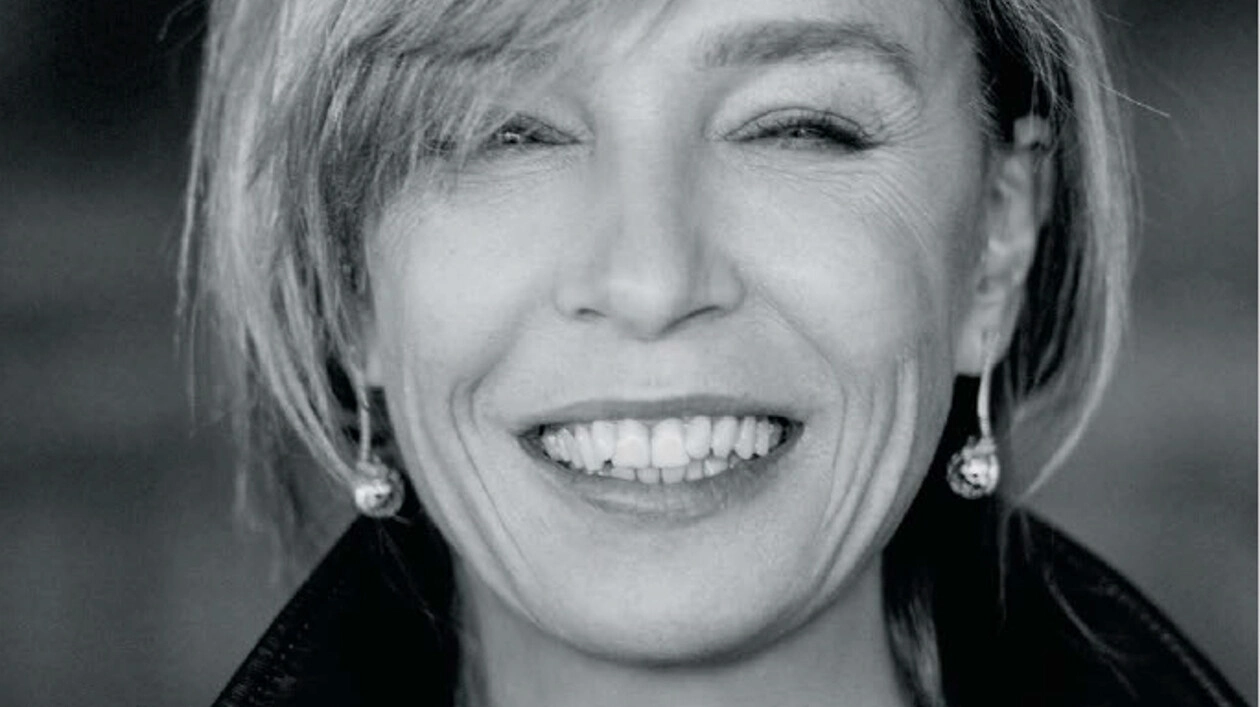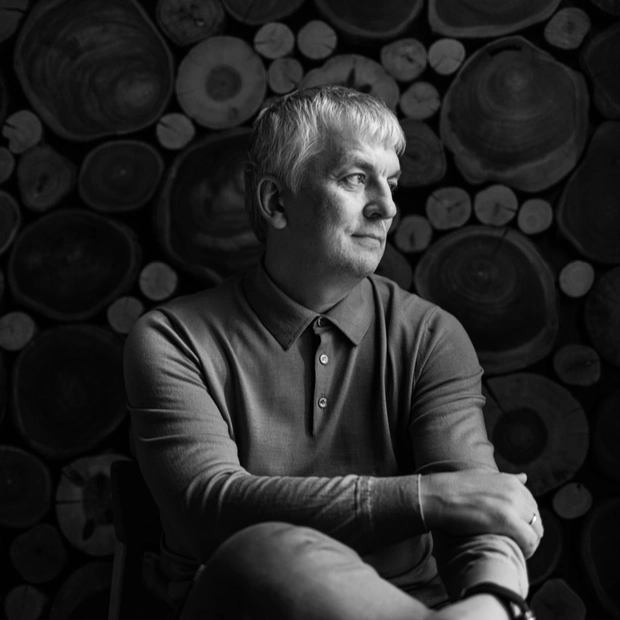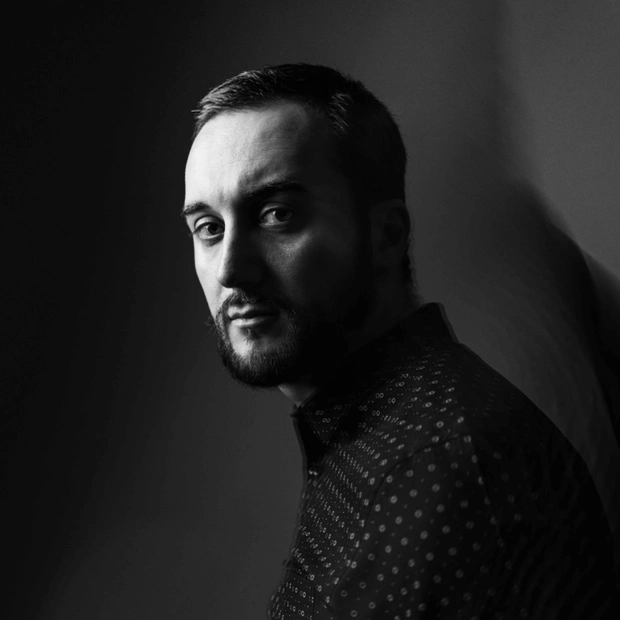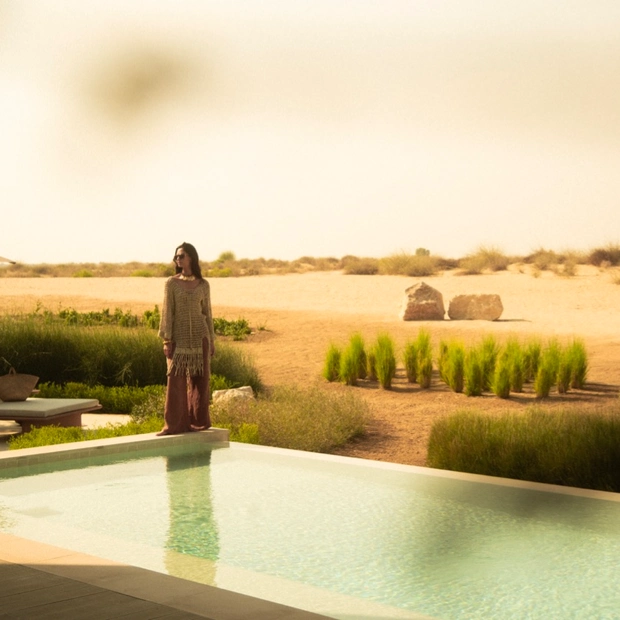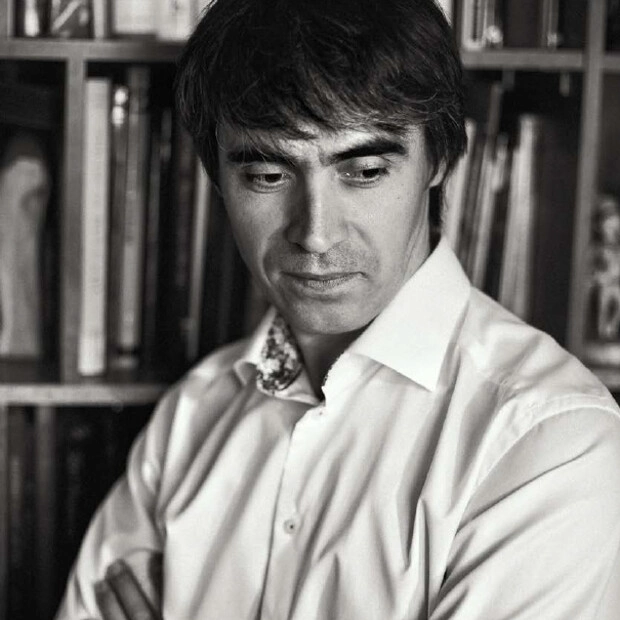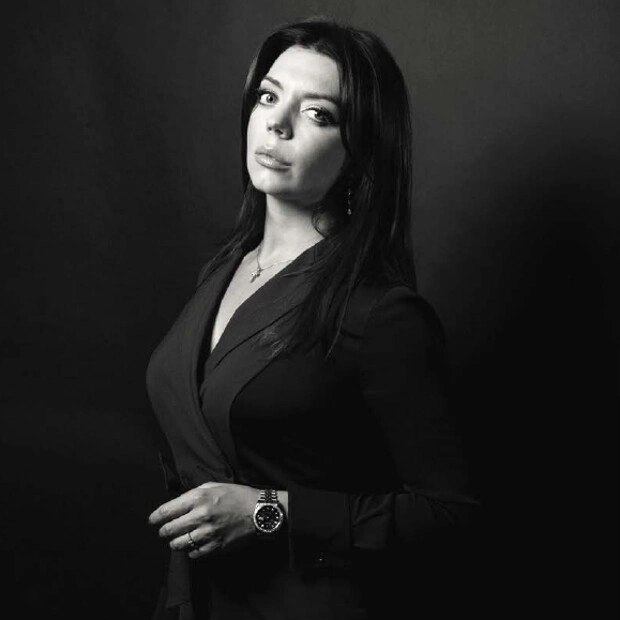Thank the Creator that there are people who like discovering new things. The six days of creation are work, deeply engaging work, with the seventh, usually, being for relaxation and rest, but sometimes, for redrawing what has been created. Vogue created the woman, and Russian Vogue Doletskaya. In her six days, she has created several years of Interview, lovely black-and-white drawings, cooking publications; she has dreamt of flight, read Montaigne, and now has given us a new book, entirely unrelated to cook-ing, Not Life, But A Fairy Tale. While for Montaigne, "to philosophise is to learn to die," for Doletskaya, it is learning how to live. Her column is a diverse mosaic, on everything from the ancient Greeks to the Internet. But the thread running through all of it is an insatiable curiosity for life, people, and herself. In this, she sees roses growing under the snow on Kaluga Highway; she rides in a flying taxi; she'll write a book with the recipe "How to Learn to Love Life, and Turn Utopia Into Reality". Though this, as usual, is on her seventh day, instead of rest.
At the very point of origin for the project of utopia, there stood Plato. Labelling it as "a place that was not," he, though he didn't realise, opened the floodgates for a restless army of dreamers and visionaries for millen-nia to come. And this is natural people, unlike animals, have the gift of dreaming. It could be said that the world we create is a projection of our desires. To dream is wondrous to realise those dreams is difficult, and at times, impossible. Most of El Lisitsky's projects remained on paper. We look at his prouns and think: what striking beauty! Maybe someday… And Zaha Hadid has done it. Elon Musk has done it.
Our technologies today are bricks, taking us further than we've yet been. It's another issue that there are people who just bounce up and down on these bricks, tweeting this, liking that, following whoever. But there are people who use these bricks to build major projects, cultivating them; and the fact that they culti-vate them today, dreaming of what will be done tomorrow, is incredibly thrilling.
Though there is, however, one problem: technolo-gies have been coming into being too quickly for us to learn to make use of them wisely that is, ethically, humanely, with dignity. And there's the risk of making a lot of stupid things. Elon Musk even said that in our excessive enthusiasm for artificial intelligence, we risk losing something important.
How many great thinkers have told us that while money is essential, there are things of much greater sig-nificance? Montaigne wrote about friendship so accu-rately, that reading him today, you feel like you have to call your closest friend immediately and tell them that friendship isn't about sending emojis, it's about THIS! His work goes straight to the heart, and you think, "Oh my god, three centuries! Three hundred years! And we're still trying to master such simple things".
We, for some reason, drill the ocean in search of oil, and get thousands of stunned, suicidal dolphins washing up on shore, no longer able to live in the places they've inhabited for centuries. With our intelligence, we reduce beings who've been here far longer than us, and who, inhabiting a much greater portion of the Earth than we do, are in fact its real owners. It's we who are their guests. And now, as guests, we've managed to come here and send the whole place to hell. We've made as much money as we can, as quickly as we can, and destroyed the planet in the process.
It's a hard point we're at in the world, where nobody likes each other, and from my point of view, we've en-tered into an unprecedented antagonism. I never thought I would hear someone on TV, from our official press, say of America that it was a "country of freaks and rep-tiles". And they have similar broadcasts about us. It was practically yesterday that the world was bathing in the euphoria of globalisation, making friends with each other, travelling wherever they wanted. Five or six years ago, I met with a group of philosophers, one of whom claimed that very soon, we'd see a colossal bout of nationalism and isolation, raging and severe. Everyone else laughed and said that he'd had a few too many. It turns out he was right. Does it mean that humanity in general is prone to wave-like, or, as is often said, spiral, development in our thinking? First friendship, then hatred, first technology, then we all head for the woods to build our farms, milk our cows, and make our cheese. Perhaps utopias never become reality because people can't make up their minds about what they want?
Every day, I'm dreaming about something, and often, it's about the simplest things. In December, for example, we'll all be overwhelmed by the snow on Kaluga Highway, and I'll look at the snowdrifts and dream about how the roses will blossom on the ground at the bottom of that huge hill. Small desires like that. Or the universal dream that we'll all someday be able to fly. Air taxis already seem to exist. And of course, when everyone was still listening to music on CDs, flash drives were already ready to go. I'm sure there are alternative energy projects already fully worked out, but they're held back by business and profits. If someone's sitting on oil, why does he need windmills?
The dream that most warms my heart is that of drawing out the utmost potential from within myself and in others, and fitting it into our lives as much as can possibly be accommodated. For me, one of these great breakthroughs was when I, a person not at all inclined to draw, found myself in a group at the Drawer's Club, led by the artist Lavrenty Bruni I was covering his work for a magazine. Lavrenty said to me, "enough already with your shooting you write, you shoot, you write, you shoot sit down and draw". But I'm all thumbs; how am I supposed to draw? He said that it wasn't about "being able" to draw, but about seeing, hearing, and finding something on paper. I'll never forget this. I sat down, and I began to draw. And now, someone's hanging my work in their house and getting pleasure from it. If someone had said ten years ago that I would put out three cookbooks, my finger would have been spiralling next to my temple. And then bang! A breakthrough. Now I want to fly.
I like to confess my love for utopias. The book I published in December, Not Life, But A Fairy Tale, is, in fact, a utopia, but I'm trying to drape it with reality. The title itself is utopian. A lot of people will think, "Ooo Doletskaya, this isn't life, it's a fairy tale, really". But it's about the present, it's about reality. And I want to allow the reader to see himself in this book. Like when they were still recovering from Soviet life, Russian women, through magazines, were able to see themselves in a way that still seemed so remote and unthinkable in this country.
1998: Vogue Russia's first marketing campaigns. I remember how, one day, two of the five focus group participants answered the question about what Vogue is with the response: "It's cigarettes". And I then had thought that everyone, like me, was up in the clouds, and that they would all respond that Vogue was a magazine. And yet, Vogue isn't just a magazine, it's an overall life aesthetic. I came up with it myself. At that time, there was both Elle and Harper's Bazaar, but it seemed to me inappropriate to write, "Five Red Dresses Of the Season" on the covers. I was certain that, despite the fact that Russian women had said that Vogue was cigarettes, they weren't desirous of edification. They wanted to know how to think and feel for themselves. They just needed a jolt of taste, aesthetic, intellectual, informative.
It's wonderful when people tell me, "Oh, but we grew up reading your Vogue!" It's the "your Vogue" that does it. Because the "five dresses of the season" has re-turned. Every other cover is feathers, rhinestones, chiffon. It's a shame. Media is currently undergoing birth pangs, which, as we know, can end in different ways: a child can be born healthy, sick, or even dead.
I'll go to a cafe and see a young mother with a one-year-old who can't yet formulate a complete sentence, but he already has a screen in front of him it's scary. Friends come and ask: "My kid is always on her phone, what should I do?". We need to replace phones with something else, but it turns out that that something else isn't so easy to come by. We have to give ourselves to them, but how is that even possible, when you yourself aren't putting that same toy down? People have become difficult to communi-cate with; we all have a time limit. Everyone tolerates each other for a little while, and then they reach for their phone they suddenly have a message, or they have to answer a call. It's a strange phenomenon, which I look at with great curiosity. And if I have any big dream, I'd put it like this: I'd wish for my curiosity never to fade. I'd want to know what that kid, the one tapping his screen, would say to me if I returned to that same café, ten years down the road. And I feel that when a person ceases to be interested in the world around him, then hes no longer really alive.
But the idea of eternal life doesn't interest me. It seems to me that human-ity hasn't really grasped this utopian idea. Perhaps, I remain confident the Lord knows how much time we have left here. Even if he's the only one who does. In the meantime, we'll stick around and dream.
